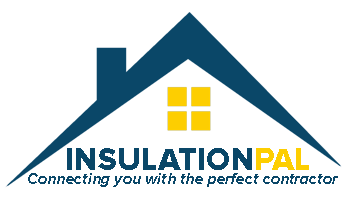As it pertains to home comfort, adequate insulation is often overlooked, overshadowed by flashier home improvement projects. That said, the process behind home insulation is fundamental to building a cozy environment, cutting energy costs, and increasing your home's overall value. As we navigate the world of insulation, we'll examine everything from R-values to the benefits of air sealing, helping you understand why insulation is a worthwhile investment.
In this guide, you'll learn how to check your home's current insulation, decide on the right materials for your needs, and execute successful strategies that go beyond just putting on more blankets. If you're faced with drafty rooms or looking to maintain a comfortable temperature year-round, understanding the nuances of insulation will allow you to make wise decisions that enhance your home's efficiency and comfort.
Choosing the Appropriate Insulation
Selecting the suitable insulation for your home is crucial for ensuring comfort and energy efficiency. The choice primarily hinges on a few factors, including the weather in your area, the specific areas of your home needing insulation, and your budget. For case in point, in colder areas, materials with higher R-values are optimal to successfully resist heat loss. Conversely, in warmer regions, insulation should reflect heat to maintain cooler indoor temperatures. Grasping these variables will help you navigate the many options available.
Various insulation materials offer unique advantages and disadvantages. Batt insulation, often made of fiberglass, is popular for its simplicity of installation and cost-effectiveness, while blown-in insulation provides great coverage in hard-to-reach areas. Spray foam insulation produces an airtight seal, causing to superior energy efficiency but tends to be more expensive. Evaluate your home's layout and insulation goals to identify which type fits your needs best. Consider consulting with specialists if needed to make a well-informed decision.
Ultimately, the ideal insulation selection can significantly impact both your home's energy efficiency and overall comfort. By investing effort in studying and selecting the best insulation for your specific circumstances, you can boost your living environment and potentially save on energy costs long-term. Don't hurry this decision; comprehension of your options is essential to achieving the most effective results for your home.
Sound Setup Tips
When installing insulation, it is essential to get ready the area properly. Eliminate any clutter and ensure that the space is clean and dry and clear. Ensure you wear suitable safety equipment, such as gloves, goggles, and a mask, to protect yourself from hazards. Setting up insulation in an clean environment not only aids in a smoother installation but also helps prevent potential hazards.
Accurate measuring and cutting of insulation materials are critical for securing an effective seal. Be accurate with your measurements to reduce gaps and make sure that the insulation fits securely in the locations it is meant for. If you're using batt insulation, do not squashing it, as this can diminish its effectiveness. If you are using blown-in insulation, take care to distribute it evenly to achieve the targeted thickness and amount.
In conclusion, always pay attention to sealing air leaks before and during the insulation installation. Locate and seal any air leaks with caulk or spray foam around windows, and other penetrations. This step is vital as it enhances the insulation's performance by stopping drafts from compromising your home's thermal barrier. Insulation contractor sealed and insulated home will provide better energy efficiency and comfort throughout the year.

Perks of Quality Insulation
Effective insulation offers significant advantages that go beyond mere comfort in your home. One of the main benefits is energy conservation. Well-insulated homes experience reduced heat transfer, which means your heating and cooling systems don’t have to work as hard to ensure a comfortable temperature. This leads to reduced energy bills, allowing homeowners to save money in the long run. Moreover, enhanced energy efficiency contributes to a lowered carbon footprint, aligning with greener living practices.
A further important benefit of effective insulation is its role in improving indoor air quality. Insulation can help control indoor temperatures and reduce humidity levels, minimizing the growth of mold and mildew. A well-insulated home can also reduce the infiltration of outdoor pollutants and allergens, creating a better living environment for you and your family. This creates a space where you can feel more at ease and be more comfortable, enhancing your overall well-being.
Ultimately, proper insulation can raise the value of your home. Buyers are increasingly looking for sustainable features that promise reduced utility costs and a lowered environmental impact. Insulation is a discreet upgrade that can differentiate your home apart in the real estate market. By investing in insulation now, you not only enjoy immediate benefits but also position your property for better resale value in the future.
